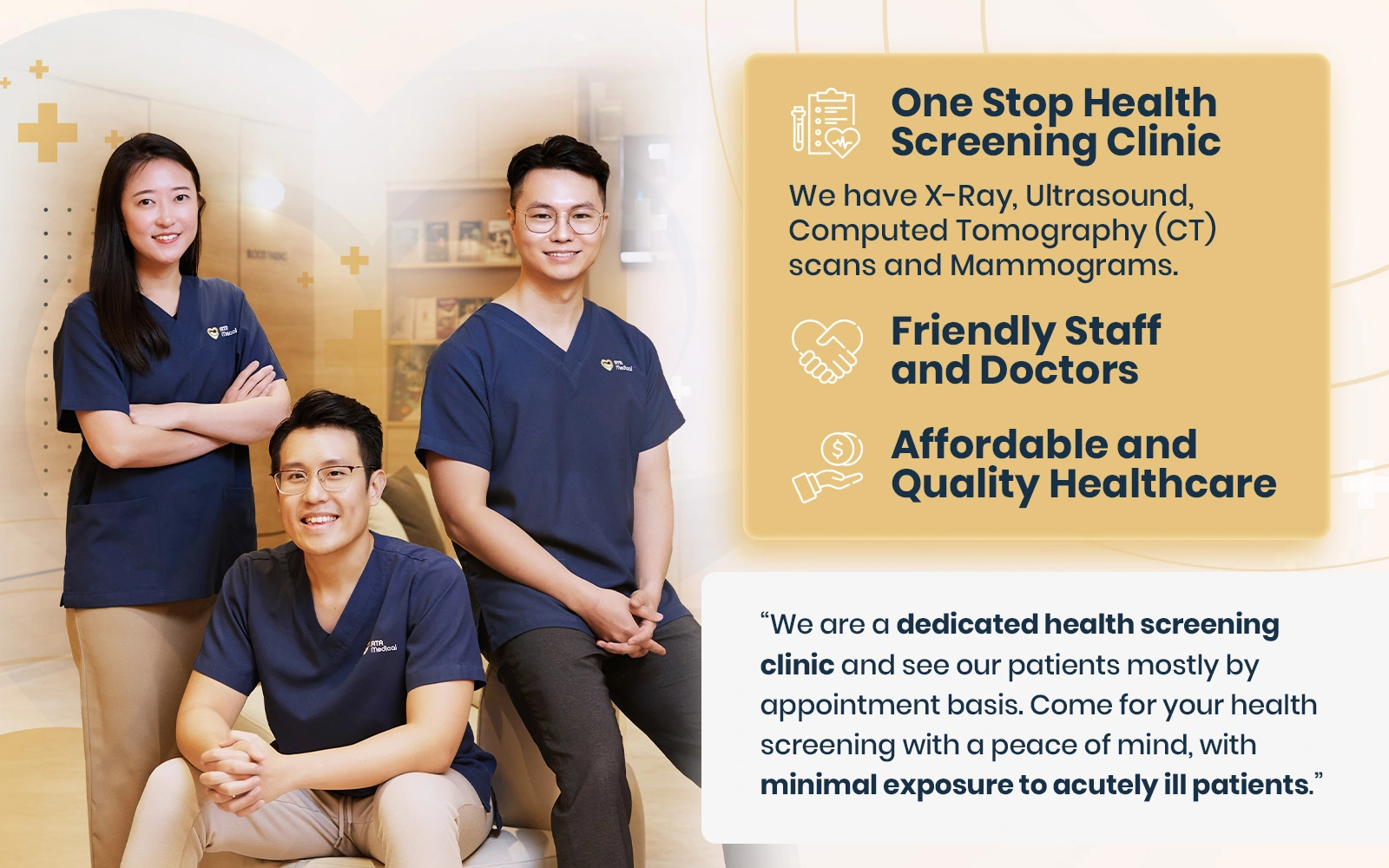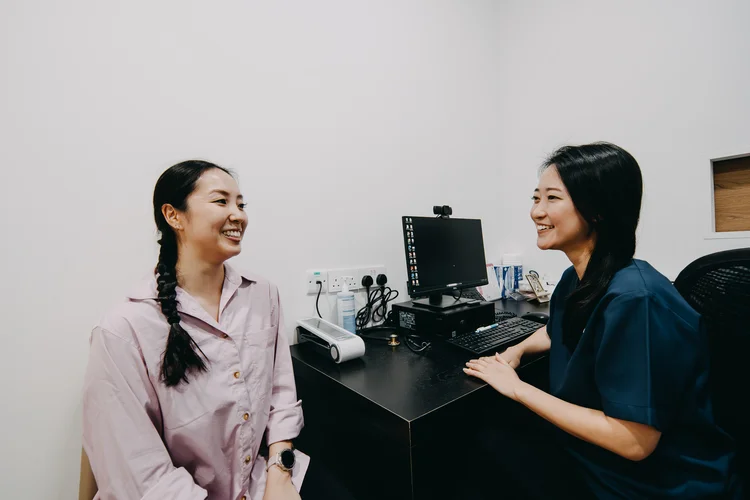Sexually Transmitted Diseases (STDs) Singapore
Are you considering getting tested for sexually transmitted diseases (STDs)? At healthscreening.sg, we are a general practitioner (GP) clinic providing services for the detection, treatment, and prevention of various sexually transmitted infections. Our goal is to help you make informed decisions about your sexual health while offering discreet and high-quality care.
STDs We Provide Services for
Below is a list of some of the most common STDs we address at our clinics, along with the services offered:
| STD | Services |
|---|---|
| Chlamydia | Testing, Treatment |
| Gonorrhoea | Testing, Treatment |
| Syphilis | Testing, Treatment |
| Genital Herpes | Testing |
| Human Immunodeficiency Virus (HIV) | Testing |
| Human Papillomavirus (HPV) | Testing, Vaccination |
| Trichomoniasis | Testing, Treatment |
| Hepatitis B | Testing, Vaccination |
We also provide comprehensive STD testing packages that screen for multiple infections simultaneously. For services not listed above, please contact our friendly staff for assistance or further inquiries.
Resources on STD Testing & Awareness
- Why Is Sexual Health Important?
- How Do STDs Spread?
- How to Prevent STDs?
- Can STDs Be Cured?
- STD Rashes
- STDs and Pregnancy
- How Is an STD Test Conducted?
- How Long Does an STD Test Take?
- When Should I Test for STDs?
- How Often Should You Test for STDs?
- How to Test for STDs in the Throat?
- Can STD Tests Be Wrong?
Compassionate and Confidential Care
At healthscreening.sg, we understand that seeking testing or care for sexually transmitted diseases (STDs) can feel overwhelming or sensitive. That’s why our dedicated team of doctors and professional staff is here to ensure your experience is seamless, discreet, and stress-free. Your comfort and privacy are important to us, allowing you to focus on your health and well-being with peace of mind. Book your appointment today and take the first step toward better sexual health.
Why Choose Us?








Navigate Easy With Google Maps
Health Screening Singapore (Anson House)
Nearest MRT: EW15 Tanjong PagarHealth Screening Singapore (Camden Medical Centre)
Nearest MRT: TE13 Orchard BoulevardHealth Screening Singapore (CPF Jurong Building)
Nearest MRT: NS1/EW24 Jurong EastFrequently Asked Questions (FAQ)
In Singapore, common STDs include chlamydia, gonorrhoea, syphilis, genital herpes, and human papillomavirus (HPV). Among these, chlamydia is particularly prevalent, especially among younger individuals.
Having an STD does not define your life or future. Many STDs are treatable, and others can be managed effectively with proper care and medication. Early detection and treatment are key to maintaining overall health and well-being.
The terms STI (Sexually Transmitted Infection) and STD (Sexually Transmitted Disease) are often used interchangeably, but they have distinct meanings. STI refers to an infection that may not yet cause symptoms, whereas STD refers to an infection that has progressed and is causing noticeable symptoms or disease.
Human papillomavirus (HPV) is considered the most common STD worldwide due to its highly transmissible nature. Chlamydia is also highly prevalent and is often undiagnosed due to the absence of symptoms in many cases.
You can get tested for STDs at GP clinics, sexual health clinics, polyclinics, or specialised centers like the DSC (Department of STI Control) Clinic. At healthscreening.sg, we offer testing for various STDs and comprehensive testing packages that screen for multiple infections simultaneously.
STDs like HIV, genital herpes, and some strains of HPV are not curable but can be managed effectively with treatment. Most HPV infections resolve naturally, but persistent high-risk strains may lead to complications.
Having an STD is a medical condition, not a reflection of character or morality. STDs can affect anyone who is sexually active, and seeking prompt medical care is essential to prevent complications and reduce the risk of transmission.
Common symptoms of STDs include pain during urination, unusual genital discharge, sores or warts around the genitals or mouth, itching or swelling in the genital area, and pain during intercourse. Symptoms vary depending on the STD, so it’s best to consult a doctor for an accurate diagnosis.
If both partners have been tested and are confirmed to be free of STIs, the risk of transmission through sexual contact is virtually nonexistent. However, it is important to maintain open communication, ensure mutual monogamy, and consider safe sexual practices to protect long-term sexual health.
It is not always possible to tell if someone has an STI, as many STIs do not cause visible signs or symptoms. Regular testing is the only way to detect and treat infections early.
Yes, it is recommended to get tested for STDs after every new sexual partner, even if you used protection, to ensure early detection and treatment if necessary.
STDs are relatively common in Singapore, particularly among young adults aged 20 to 39. While chlamydia and gonorrhoea are frequently reported, the actual prevalence may be higher due to underreporting and undiagnosed cases.
